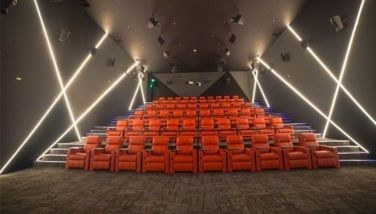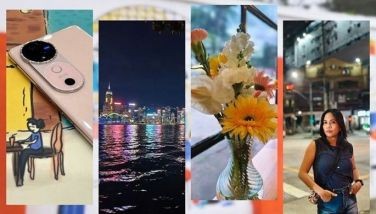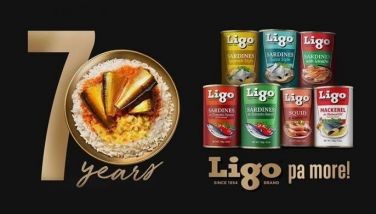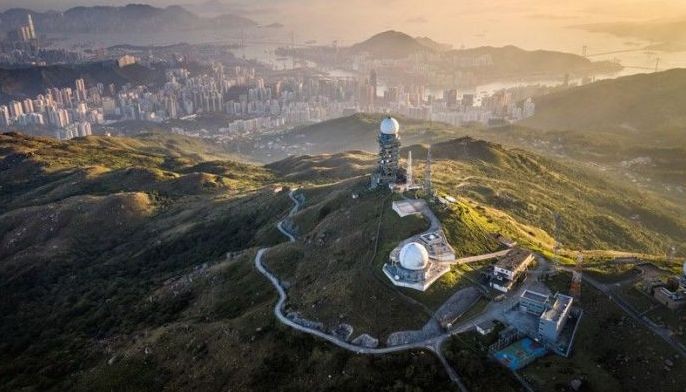Supernatural Davao
June 9, 2002 | 12:00am
 When I arrived last weekend in Davao I knew exactly what I wanted from her.
When I arrived last weekend in Davao I knew exactly what I wanted from her.
My task was simple: to see the city not just as urban center or a metropolis, but as a living, breathing thing of pulsations, vibes and juices. To glimpse, if only infinitesimally, Davao’s soul.
I was sure that Davao, the gateway to Mindanao, would be special. She would have her own inner conflicts, and thus, her own temperament, character and pride. She has nursed her integrity and honor in the shadow of her cousins Manila and Cebu for centuries, ignored by the Spaniards, unconquered by the Americans. She is watched over by the enchanted Mount Apo and caressed by the Southern seas. And for this I had hoped, that she, quite grandly, would emerge with a beauty and poise that is all her own.
You can see Davao’s sense of pride as you cruise around the city. The airport alone, though neglected and un-air-conditioned, is a touching sight, with a shape organic to any Filipino. It is fashioned after a vinta boat, the ancient mode of transport, and there it is, housing the most modern of our modes of transport. But soon it will give way to a concrete-and-glass box.
Such a theme repeats itself throughout the city: The curlicues of Muslim artistry painted on some bus stops. The multicolor, and never the monotone, on older houses and buildings. The indigenous fabrics and textures woven and soaked in kaleidoscopic patterns.
And all this alongside new malls, hotels, restaurants and private subdivisions, the usual facsimiles of Manila.
Downtown Davao, where I was billeted at the Royal Mandaya Hotel, is a taxi-filled hub of people who take their time. Life goes on, but it remains still; the townsfolk are moving, but they’re not really going anywhere. And when evening comes, it is just a prolongation of the day.
But there was something provocative, like a secret handshake, among the Davaoeños, and I could only surmise it to be a kind of faith in and of themselves. A spirit of complicity, quite unlike the Manileño selfishness–a common mantra of citywide confidence. And the specter of a well-loved man hangs pointedly in the hot, humid air: the mythical Rodrigo Duterte, the unopposed, the unforgiving, the last man standing. The dust of the town settles at this mayor’s boots!
He has cleaned up Davao, they say, purged it of its vices, swept the dirt out of its underbelly. He has made it harder to smoke a cigarette there than to swallow an entire durian.
Looking for what remained of Davao vice, I ventured out to the nightspots. At The Venue, a huge club the size of three movie theaters, teenagers flock to see local and Manila bands. At Halo, a tiny dance club that caters to an older set, the techno sound pounds, but the DJ is not quite their god, and the crowd does not so much as dance, but circulates. And it is all mellowed out by the time the 2 a.m. liquor ban comes around.
At the Casino Filipino, the tables were pretty full, but since I was never much of a gambler, I was riveted to the casino’s amusing interiors. My fellow junketeer, Erich Edralin, noted that it was of the "Moroccan meets Binondo" school of architecture. In the hall’s secret panels one could almost hallucinate the repeated motif of Kings of Aces and the durian fruit.
Because there, the smell, sight and taste of the beloved durian is everywhere. Though I did not acquire a taste for the spiky green thing, I appreciated very much that such a fruit could leave such an indelible stamp on its territory. As we left the downtown area for the city outskirts, it was as if I was following the trail of its scent, hoping to find what it is about the durian that makes it so Davao, and vice-versa.
Finally, it was out of the city proper that I began to see what Davao and Duterte and durian were really all about.
In Malagos, the effort of the Davaoeños to give back to the habitat what was once thoughtlessly taken is prevalent. At the lush and verdant Malagos Garden Resort, the flora reigns supreme, manicured to look and feel like a newborn tropical rainforest, a sanctuary for birds (ducks, pheasants and ostriches!), butterflies and National Artist Napoleon Abueva’s cherished artworks and sculptures. The family cottages never intrude–they are not on the garden, to paraphrase Frank Lloyd Wright; they are of it.
At the Philippine Eagle Center, I finally saw the national bird, the Pithecophaga jefferyi. Staring at its snow-white chest and crowned head, I immediately felt sentiment, and sympathy. Pag-asa is its name, the first of its kind to be born and bred in captivity. In its leafy environs, one can see the sincerity of man’s atonement to nature after guilt and regret have begun to subside: a promise that Pag-asa will fly freely at the foothills of Mount Apo again, and so will thousands others like him. There, they say, when the eagle soars, he shall take Davao along with him.
We drove through the durian plantations of the Consunjis, and there I beheld for the first time rows and rows of the surprisingly squat durian trees that bore such sensuous fruit. According to machismo legend, the durian is an amazing aphrodisiac; and to nutritionists it is a great detoxifier as well. Either way, the potency of durian lies in its fastidiousness. Why, I wondered, does the fruit grow in such abundance only here, way down South? Was it because of a rare air bestowed from the tops of Mount Apo?
Then I discovered Davao’s best-kept secret. In front of the Apo, behind the city and the Davao Gulf and nearer to the sky, we headed to Mount Talomo. At 2,500 feet above sea level we entered Eden, a resort carved by the Ayalas of Davao(not the Zobel de Ayalas) from what used to be a denuded, logged-over area.
Ninety-five percent man-made, Eden is an impressive effort at bio-diversity and the rehabilitation of what could have been forever lost in the name of Progress. Thousands of pine trees have been transplanted to this place, making it the only pine forest in Davao City where deer, monkeys and birds (peacocks!) thrive. The climate is like Baguio’s, but since it is unpolluted the air is crisper; it is the tamed and calmed outdoors, which is why there are hiking trails, campsites and camphuts, a fishing village, mountain ponds, and–surprise, surprise!–a firefly sanctuary. On the slopes, organic vegetables and herbs are grown, and beside the flower gardens there is a charming amphitheater of grass. Over 25 years in the making, Eden is a wholesome refuge, developed at its own pace, detached from the lure of the real estate quick profit or the golf club share value.
Back in the city, my last night in Davao was punctuated by a full tummy. I had the standard tuna and blue marlin in its various renditions (kinilaw, panga, belly, steak), of course, as well as other grilled delights. But what I shall never forget was the exquisite slipper lobster–cooked in what I imagined was the Chinese Imperial style at Ahfat, Victoria Plaza. Lami!
Yes, I glimpsed Davao–and if I could be so pompous as to say so–the essential Davao. Her character and strength come from a slowly resolving dilemma, the way Manila’s comes from her yet-unresolved identity crisis. While other cities grapple with issues of modernity versus tradition, past versus present, and humans versus fellow humans, Davao’s contrasts are the most ancient, the most romantic, and the most imaginative of all. It is that of man and nature, coming to terms with one another, so that the City may live and grow and age beautifully for all that will inhabit her.
BrandSpace Articles
<
>



















